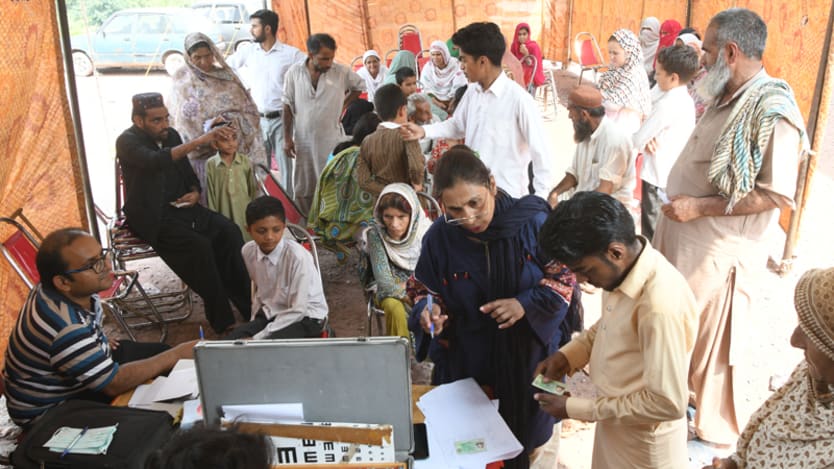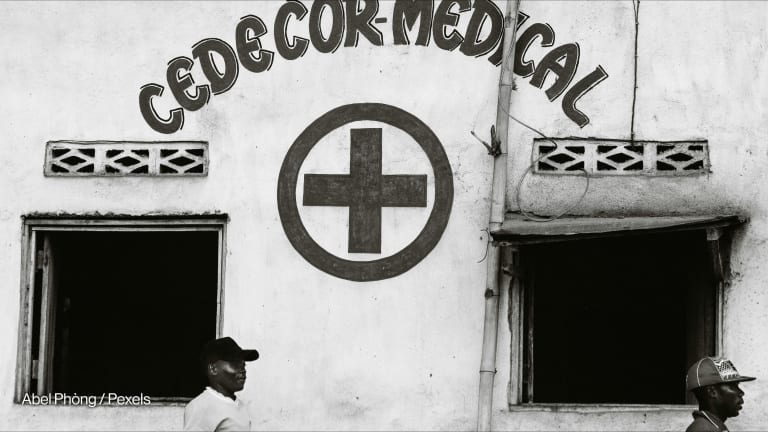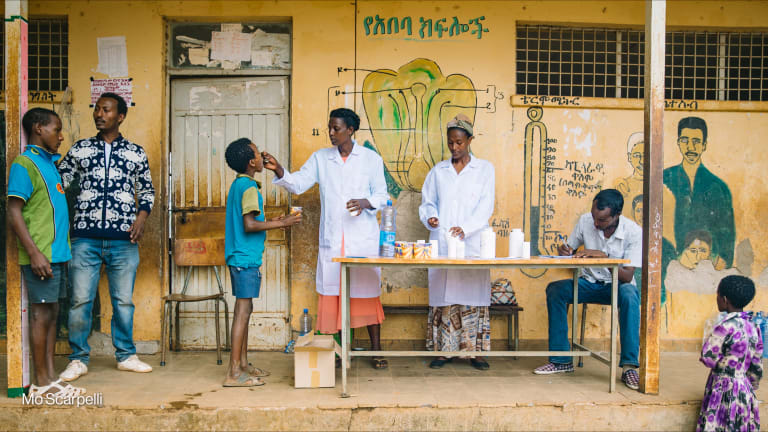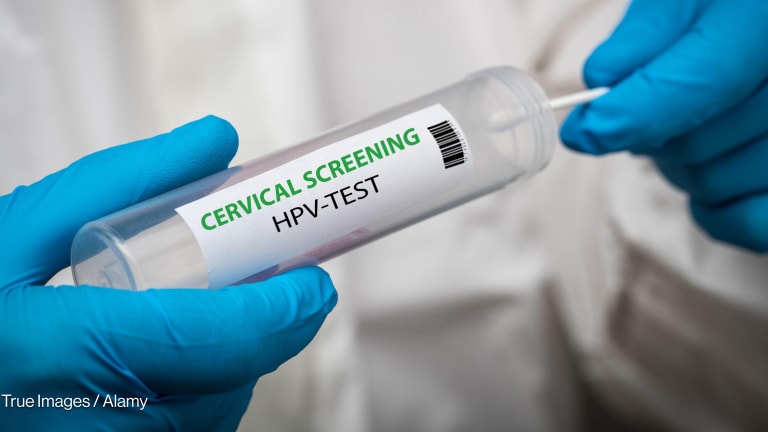
2019 promises to be a huge year in global development, with the potential to change the lives of millions of persons with disabilities in developing countries.
Devex’s Development Enabled series
Development Enabled explores the daily challenges of people with disabilities, while looking at solutions on how to support a disability-inclusive world.
There’s the United Nations High-level Political Forum on Sustainable Development in July, with another meeting at the U.N. General Assembly in September. And, for the first time since the agreement of the Sustainable Development Goals in 2015, the HLPF will review progress against SDG 10 on reducing inequality within and among countries.
For persons with disabilities in developing countries who may struggle to access inclusive education, health care or employment, this is highly significant. Persons with disabilities are often at the heart of this inequality, with women and girls even more likely to be excluded or have their basic human rights denied.
“There must be robust and comprehensive indicators that countries will measure against to demonstrate progress for everyone.”
—It is critical to the “leave no one behind” mantra that September’s gathering at the U.N. General Assembly in New York takes the opportunity of the combined meeting with the high-level political forum — and the focus on SDG 10 — to deliver a firm commitment to actually leaving no one behind.
There has been some progress of course, albeit patchy.
Progress on disability inclusivity
Last July in London, the U.K. and Kenyan governments with the International Disability Alliance organized the first ever Global Disability Summit, focusing on development. Over 170 commitments were made putting disability front and center in development for governments, the private sector, U.N. agencies, and civil society organizations.
Several governments — the United Kingdom, Kenya, Nigeria, Uganda, and India — committed to prioritizing the needs of persons with disabilities. The World Bank pledged to embed disability inclusion in all its operations and UN Women launched a disability strategy putting women and girls at the heart of its work.
At U.N. headquarters, the secretary-general initiated a process toward the development of a U.N. system-wide action plan to mainstream the rights of persons with disabilities across all the institution's operations.
But more needs to be done.
Data for disability inclusion
There must be robust and comprehensive indicators that countries will measure against to demonstrate progress for everyone. This will require disaggregation of data within those indicators so that societies can judge whether the implementation of policies is benefitting all citizens equitably, and where to focus resources in order to ensure all people are included.
As William Mwambu, a disability leader in Uganda explained: “When the duty bearers, planners, counting officers, and implementers, lack information and data, it becomes very hard. Why are we saying we need accessibility? Why are we saying we need increased funding toward disability? Where are the people? We are not seeing them.”
The Inclusive Data Charter is a key innovation in this area, bringing together governments, multilaterals, data specialists, and civil society to support and challenge each other in improving the collection of data aimed at measuring equity.
The Inter-agency and Expert Group on Sustainable Development Goal Indicators has been looking into how to embed disability disaggregated data into appropriate indicators for some time and there was positive progress at its November meeting where three indicators that were previously categorized as “not measurable” were upgraded to “measurable.”

The meeting in Stockholm, Sweden, also included a panel on disaggregation where some countries and U.N. agencies stating the gathering, collection, and disaggregation of disability data is a priority.
Despite the progress on data, in many countries we are seeing significant reductions in national-level programs and funding for the rights of persons with disabilities, embodied in cuts to services. Unfortunately, we are also seeing a number of governments reducing the level of consultation with persons with disabilities at local and national levels, so we need to address how this change in ambition and focus on the rights of persons with disabilities in development includes or excludes disabled people’s organizations.
Paradoxically, this is happening at the same time the international network of donors active in the field of disability-inclusive development, known as GLAD, is gaining momentum through increasing the pool of foundations and bilateral donors, as well as through joint advocacy.
Organizations working with persons with disabilities rightly insist on the inclusion of persons with disabilities in consultation, planning, delivery, and monitoring of policy and programs, as embodied in the motto “nothing about us without us.” There needs to be investment in the capacity of organizations working with persons with disabilities at national and regional levels, so their voices are heard and they are in a position to take part in implementing disability-inclusive development.
More from the Development Enabled series:
► DFID launches its first disability inclusion strategy
► From CSR into HR: Disability inclusion in the workplace
► Supporting disability advocacy: Insights from Savina Nongebatu
On top of this, it is crucial that in 2019 all those interested in the fundamental principle of equity within the SDGs continue to press for it to be actively measured in development policy implementation.
Until recently — with the possible exception of gender — it has been accepted that the improvement overall in a development area, such as health, education, or political rights, is an improvement for all. For persons with disabilities and many other marginalized groups, this assumption simply does not hold true.
To echo the former U.N. High Commissioner for Human Rights Zeid Ra’ad Al Hussein, we are living in a world where inequalities are so profound that the inclusion of the goal on inequalities within the SDG framework is a necessity.
So what will success look like a year from now?
1. We need the governments that have not yet ratified the Convention on the Rights of Persons with Disabilities to do so and develop clear action plans for its implementation.
2. Governments should also devote the necessary resources and political will to implement existing disability equality policies and plans.
3. We need to see progress in implementing the commitments made at the Global Disability Summit by governments, civil society organizations, business, and U.N. bodies.
4. Monitoring the implementation of projects using disaggregated data based on disability status is another important step for everyone involved in development, as is genuine consultation with persons with disabilities’ organizations in program design.
All in all, we want to be able to look back at 2019’s key meetings and see disability-inclusive development has been adopted by the whole international community and governments are committed to ensuring they “leave no one behind” in a way that means everyone — regardless of disability — is included in development policymaking and program implementation.
For more coverage on creating a disability-inclusive world, visit the Development Enabled series here.

Search for articles
Most Read
- 1
- 2
- 3
- 4
- 5









